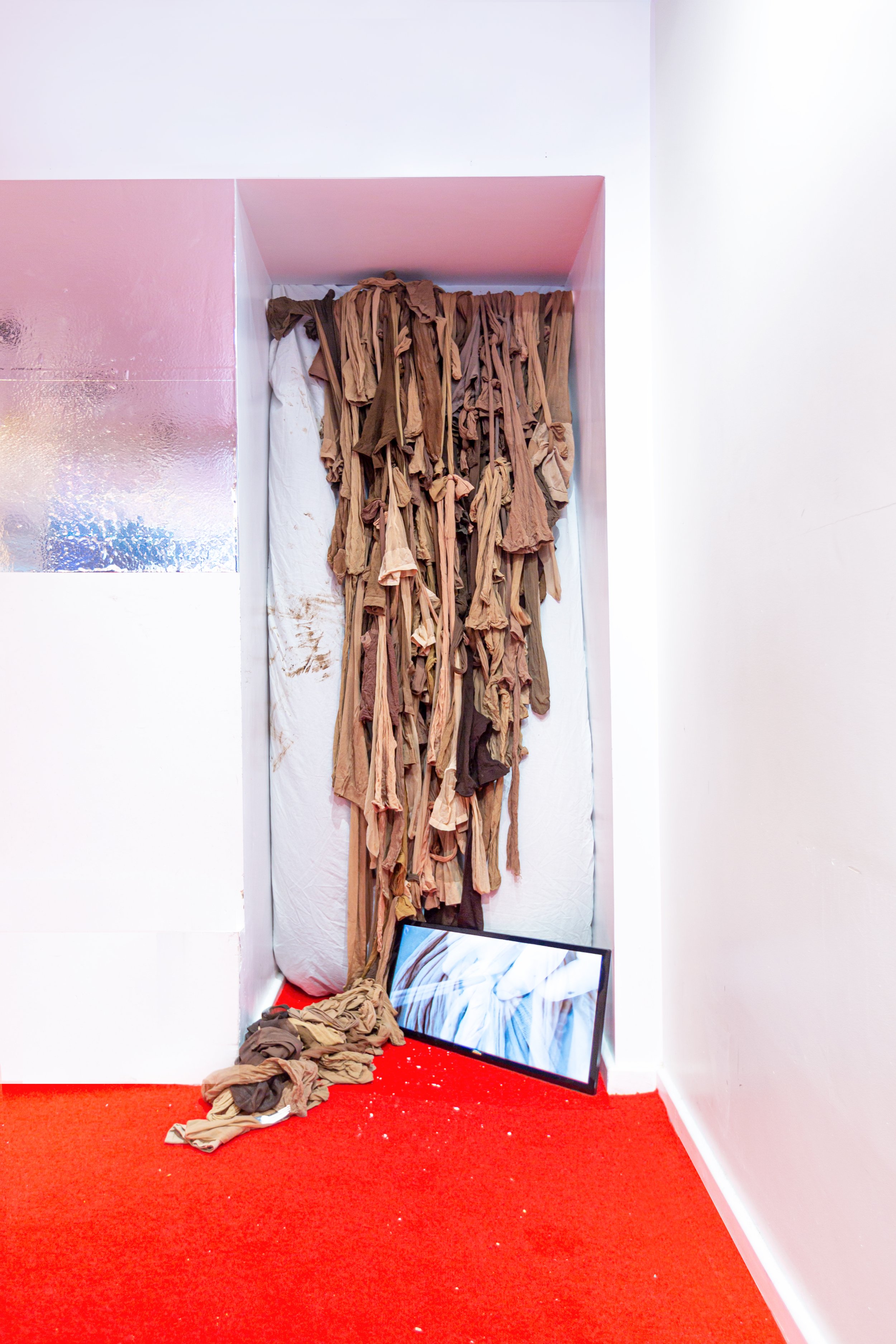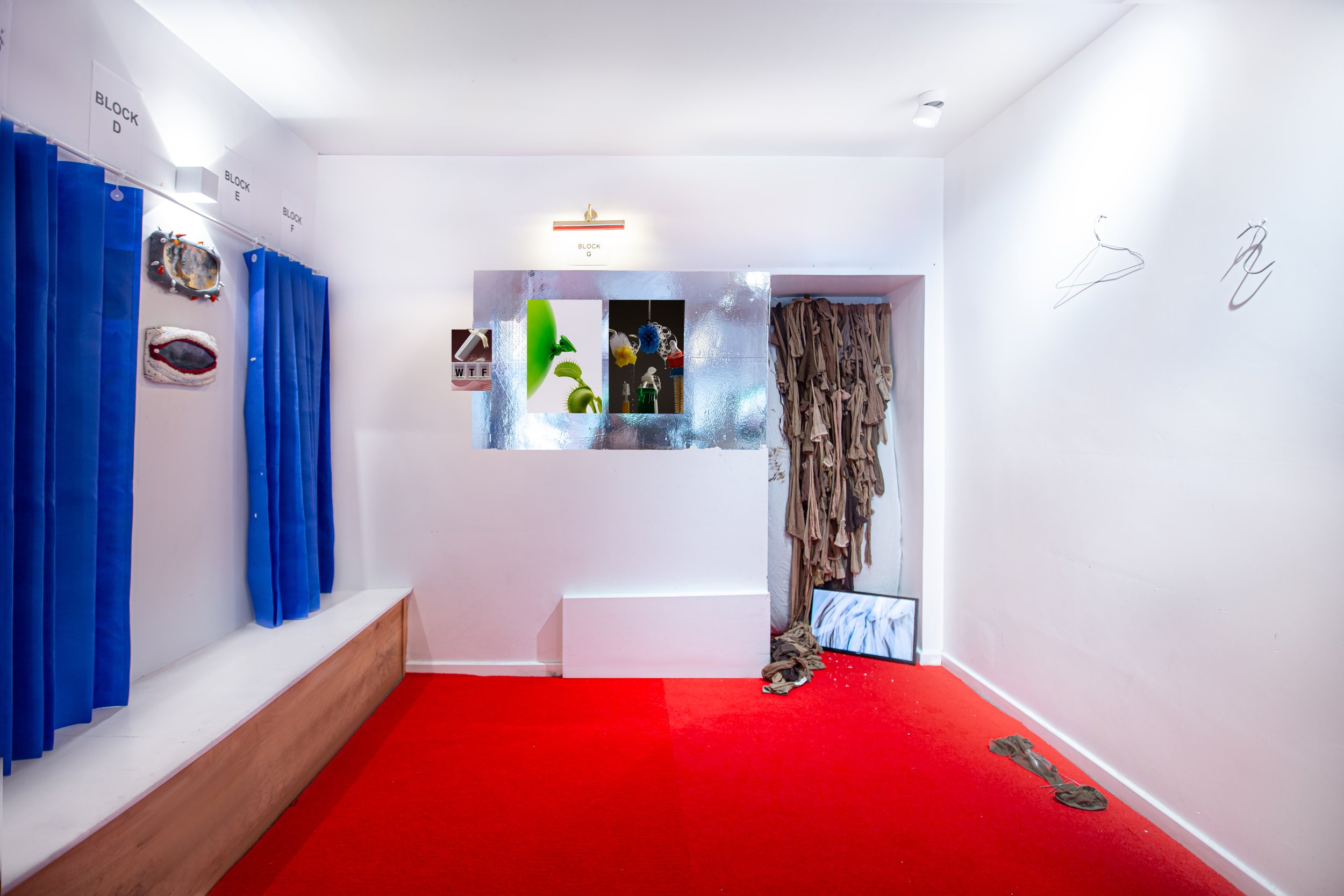DYANA GRAVINA
Dyana Gravina, 'The mothers of social hygiene #2', live performance at Unit London, 2023. Courtesy of the artistLives and works in London, United KingdomDyana Gravina (They/She) is an interdisciplinary artist, curator, birth Doula and activist, mover, and community builder. She is the founding director of Procreate Project, a pioneering arts organisation dedicated to womxn and non-binary artists who are (m)others.
She holds an MA in 'Gender Sexuality and Culture' at Birkbeck University. Their artistic and curatorial practices are interested in feminisms, migration, and body politics manifesting in a transdisciplinary body of work that combines movement, actions, photography, video, and text. They use somatic movement as a research method; the body as material. She uses both autobiographical and collective knowledge to challenge the perception of the self under social constructions and cultural environments and redefine and deconstruct univocal notions of the 'female'.They have collaborated, and curated projects with partners and venues including RCA, King’s College London, LADA Live Art Development Agency, IKLECTIK, Ugly Duck, Mimosa House, Women's Art Library, RichMix, Richard Saltoun Gallery, 198 contemporary Art and Learning, to mention a few. Her performance actions and performative lectures have been shown and hosted in the UK and internationally including, East Street Arts, Wellcome Collection, ]Performance Space[, Leyden Gallery, The Yard Theatre, Institute Centre of Photography ICP ( NYC), Art Basel / Richard Saltoun Gallery, Minusoffspace (Vienna), Unit London, Menoparkas Gallery (Kaunas), Gruentaler9 (Berlin).www.dyanagravina.com
@dygravina
SCROLL DOWN FOR AVAILABLE WORKS -
In its third iteration, ‘The mothers of social hygiene [wet threads]’ keeps exploring the ‘othering’ nature of western feminist practices, towards women from a disadvantaged socio-economical background. It highlights how disparities at the intersection between class, race and geographies among women shaped the realities and experiences of mothering and nursing from the 19th century until today. A multifaceted history of oppression, community care and grief.
The action reclaims space for the realities of the poor, "fallen sisters" from the rural areas in England and beyond, focusing on the ‘Wet nurses’. Some new mothers' most inevitable choice was to work for the ‘higher rank’ women, paid to breastfeed their babies and fulfil the ‘shameful’ task of nursing a child, leaving their own behind to be fed by other women in the community or let them starve.
The 'uncivilised' nature of women from a lower class background has been a clear demarcation between the divine ‘New Woman’ and uncivilised one with a more ‘animalistic’ and filthy nature, shaping contemporary discourse around choice, breastfeeding shame, the maternal body and health.
“[a] child can never be as well nursed by a lady of rank and nervous and refined temperament — for the less feeling and more like an animal the wet nurse is, the better for the child” (Queen Victoria)
These cracks in feminists' demands and their portraits of sanitised standards of womanhood, have created a chain of despair, human and intellectual malnutrition.
Installation Views



Available Works
Quick Links

